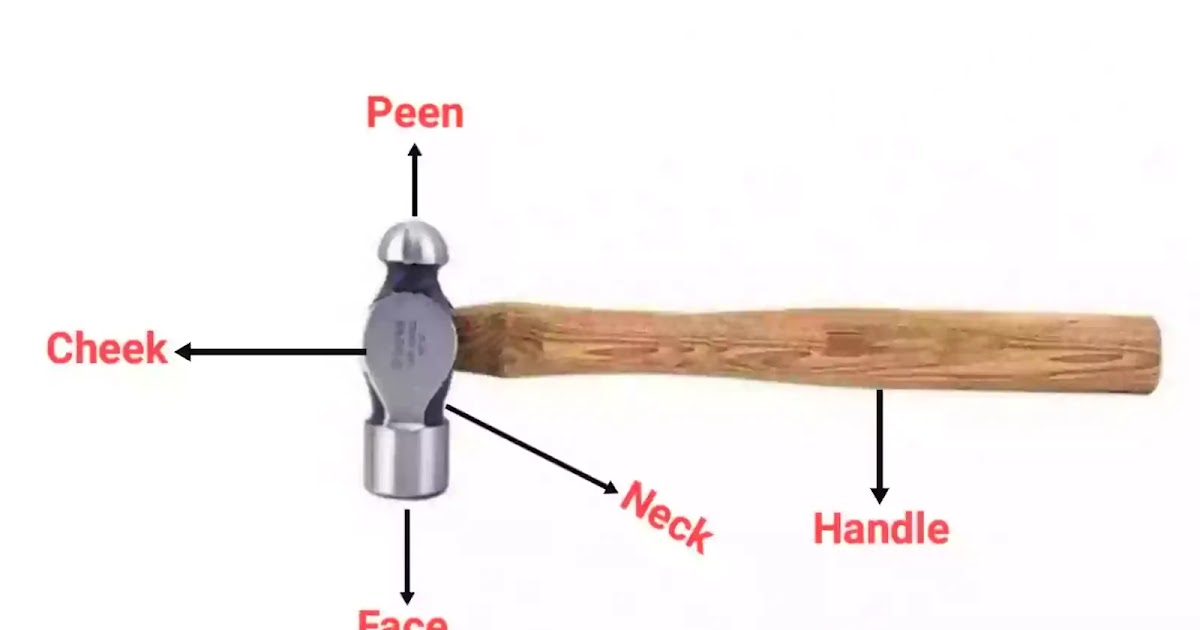Decoding the Cross Pein Hammer: Why This Weird Hammer is a Must-Have
Ever stumbled upon a hammer that looks… different? Like it’s got a double personality? That’s likely a cross pein (or cross peen) hammer, and you’re probably wondering: what is a cross pein hammer used for anyway? It’s not your average nail-driving tool. This isn’t the hammer you’d grab to hang a picture. This hammer is specialized, a bit quirky, and way more useful than it looks.
The cross pein hammer, with its distinctively wedge-shaped pein (the back part of the hammerhead), might seem like a niche tool, but it’s a surprisingly versatile piece of equipment. Its unique design makes it perfect for a range of tasks, from shaping metal to starting rivets and even some light demolition work. It’s the unsung hero of the toolbox, the tool you didn’t know you needed until you absolutely, positively have to flatten a piece of metal or drive a pin.
So, what exactly can you do with this strangely shaped hammer? The cross pein allows for controlled striking, making it ideal for tasks that require precision and impact. Think metalworking, where shaping and forming require delicate yet forceful blows. It's also a go-to for riveting, as the pein can effectively spread the rivet head without damaging the surrounding material. Even tasks like splitting stone or brick can benefit from the focused impact of the cross pein.
Understanding the purpose of a cross pein hammer starts with its history. Its use dates back centuries, particularly in blacksmithing and metalworking trades. The wedge-shaped pein was essential for shaping and manipulating hot metal, allowing craftspeople to create everything from tools and weapons to decorative ironwork. The cross pein's importance in these traditional crafts highlights its enduring utility and effectiveness.
One of the main issues related to using a cross pein hammer effectively is choosing the right size and weight for the job. Using a hammer that’s too heavy can damage the material being worked on, while a hammer that’s too light will require excessive effort and may not produce the desired result. Selecting the appropriate hammer is crucial for achieving the best outcome and preventing injury.
The cross pein design offers several benefits. First, its concentrated striking surface allows for precise blows, minimizing the risk of damaging surrounding material. Second, the wedge shape of the pein is perfect for spreading rivets and shaping metal. Third, its versatility makes it a valuable addition to any toolbox, capable of handling a variety of tasks.
To use a cross pein hammer effectively, start by securing the workpiece. Grip the hammer firmly, but not too tightly, and swing from the elbow and shoulder, not just the wrist. Practice on scrap material to get a feel for the hammer's weight and balance before working on your final project.
Advantages and Disadvantages of Cross Pein Hammers
| Advantages | Disadvantages |
|---|---|
| Precise striking for delicate work | Can be challenging for beginners to control |
| Versatile for various tasks | Not ideal for driving nails |
| Effective for shaping metal and spreading rivets | Requires practice to master |
Best Practices:
1. Select the appropriate hammer weight for the material.
2. Secure the workpiece to prevent movement.
3. Use smooth, controlled swings, engaging the elbow and shoulder.
4. Wear safety glasses to protect your eyes from flying debris.
5. Practice on scrap material to develop your technique.
FAQ:
1. What is the difference between a cross pein and a ball pein hammer? A cross pein has a wedge-shaped pein, while a ball pein has a rounded pein.
2. Can I use a cross pein hammer for driving nails? It's not ideal, as the wedge shape can bend nails.
3. What materials are cross pein hammers made from? Typically steel.
4. What size cross pein hammer do I need? It depends on the task; smaller hammers for finer work, larger hammers for heavier tasks.
5. How do I maintain a cross pein hammer? Keep it clean and dry, and occasionally apply a light oil to prevent rust.
6. What is the purpose of the cross pein's shape? To spread material, like rivets, and shape metal.
7. Where can I buy a cross pein hammer? Hardware stores and online retailers.
8. Are there different types of cross pein hammers? Yes, they vary in size, weight, and handle material.
Tips and tricks for using a cross pein hammer effectively include practicing on scrap material to develop a feel for the tool, using a consistent swing, and ensuring the workpiece is securely held. Maintaining a sharp pein edge is also crucial for optimal performance. Remember, safety is paramount, so always wear appropriate eye protection.
In conclusion, the cross pein hammer, while perhaps unfamiliar to some, is a remarkably versatile and valuable tool. Its unique design makes it ideally suited for a range of tasks, particularly in metalworking and riveting. From its historical significance in traditional crafts to its continued relevance in modern applications, the cross pein hammer proves its worth as a specialized tool with enduring utility. Understanding its uses, benefits, and proper handling techniques empowers individuals to effectively employ this powerful tool in their projects. So, next time you encounter a task requiring precise shaping or spreading, consider reaching for the often-overlooked cross pein hammer. Its unique capabilities might just surprise you.
The us president a deep dive into the role
Unmasking the green lanterns washington dc connections
Celebrate babys milestones the joy of monthly cake toppers













